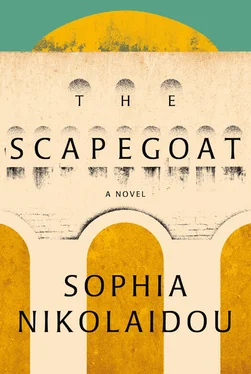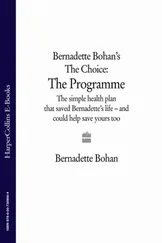Then I suddenly remembered that Gris had misbehaved, and realized that was why his widowed mother had come running, and why the headmaster had sent for her in the first place. When I entered the classroom for third period that morning, the upper jamb of the door was missing, as we later noted in the disciplinary proceedings. Holes gaped where the nails had been, and the piece of wood that had been pulled out was laid carefully to one side.
— Who did this?
I had two troublemakers in mind. Worse than troublemakers, pigs.
Gris raised his hand.
— I did, sir.
He had hung from it for a game, don’t ask me why or how he got himself up there. He, a kid you’d never even notice, had pulled down the entire top of the doorframe with one motion. And he had the courage to admit it in front of the entire class.
I took him to the headmaster’s office. He was quaking. I was careful to present the situation in a neutral manner. It was a tricky situation, since it wouldn’t do to sully the child’s record because of a single mistake.
— Punish them, don’t crush them, the headmaster had told us during our last faculty meeting. We want to graduate men from this school, not hens.
Until that moment, Gris had been more or less invisible. A good kid, a good student. Diligent but unremarkable. The kind of student who continues to greet you politely in the street for years, but whose name you can never remember. The headmaster had already been informed of the incident. He listened patiently to my account of the events, then turned to Gris.
— Is he telling the truth? he asked the student.
— I did it, sir, I hung from the doorframe, I was only playing, I didn’t think it would come loose so easily, the child answered in a single breath.
That same day, Gris’s mother was called to the school. The headmaster punished the child — it was impossible not to — but he didn’t touch his scholarship. He accompanied the widow to the gate, and gave the other children candies, a poor reward for their excellent behavior .
One thing I realized that day was that Gris’s mother, a woman who seemed as fragile as porcelain, could withstand fire and rain. She wouldn’t allow a headmaster, who’d spent his life ordering others around from behind a desk, to decide the fate of her son.
When Gris asked me for a reference letter, I wrote him one, something I rarely agreed to do. I testified to his perfect knowledge of English, though I knew he was hopeless when it came to idiomatic language. His writing was unrepentantly functional; he was going to be a journalist, he informed me proudly. So I put my hand to my heart and signed the letter. As far as a news service was concerned, he would manage. He knew how to put a sentence together, and he would work like a dog to do the job well.
And he did. Every so often I would come across one of his articles. He would write for anyone, from communists to Germans, so long as he got paid. I couldn’t blame him: as his mother used to say, words come easily to people whose bellies are full . Gris was careful to provide actual information, rather than pepper his texts with the pretty but empty phrases so many journalists seem fond of. He nurtured his sentences as if they were plants, trimmed them, fertilized them. The poor things still came out colorless, miserable, weak, and his attempts to improve them only made them worse.
But a reporter isn’t judged by the pulse of his phrases. That’s for dilly-dallying poets, or so most people think. Philistines. I never shared their opinion. They supposedly care only about the news itself. But they also love bright, shiny words. Popular phrases are their greatest weakness. In his later writings, Gris didn’t stitch phrases together merely to impress the ignorant. He crafted the joints of a paragraph, made sure his sentences followed one another logically and consistently.
When disaster befell him, the city buzzed with the news. People are naïve. They’ll believe whatever they read, rather than trust their own opinion. Gris desperately needed character witnesses. Individuals who had known him since he was a child, reasonable citizens with unsullied names who would put their hands on a Bible for him. Who would, moreover, allow their names to be associated with his in the papers.
At certain times, little things assume significance. The headmaster refused to come forward in Gris’s defense. He used the school as his excuse: he didn’t want its name to be dragged through the mud. What would the students say, not to mention their fathers? He was truly sorry, but he simply couldn’t do it. I suspect he slept easily after that. He didn’t second-guess his decision, he dressed it up, supported it, and that was that.
The truth was, he was shitting himself with fear.
Gris asked for my help from behind bars. His sister came and found me at home. She didn’t cry, didn’t fall at my feet. She asked calmly, resignedly, already convinced I would refuse. She’d already been to see everyone else: colleagues, employers, old classmates. Neighbors, other teachers, the headmaster. By that point she knew what to expect.
I always try not to act rashly. Spontaneity is for Shakespearean plots, not for real life, and when the situation calls for it, I can usually distinguish between the two. I’m fairly certain even Shakespeare wrote with a cold, calm hand, even as he tossed his characters into the fire. I told Gris’s sister that I wanted to weigh things before making a decision.
Sleep is a good advisor in difficult moments. By the next morning I had made up my mind. Gris’s sister kissed my hand as if I were a priest.
I’m no saint. But whatever the newspapers said, I did know Gris. During the trial they asked if I had children of my own.
— Of course, I answered. Two hundred each year. Does that suffice?
Some in the audience laughed; the papers quoted me in their coverage of the trial. For me the issue is simple. I teach Shakespeare. Literature is my life. For years in my classroom I’d been telling generations of young, impressionable students that words are actions. The time had come for me to prove it. I put my hand on the Bible and swore. If the opinion of a teacher who’s paid to tame souls counts for anything, Gris never raised a gun.
THROUGH OTHER EYES
On May 16, 1948, a few hours after the body of the American journalist was pulled from the sea, the prime minister of Greece anxiously stated that he had personally ordered the police force of the entire country to take action regarding this affair .
The police realized right away that it was no time to drag their heels, no time for excuses or sloppiness. It was a matter of pride for the force.
Politicians and various people of influence asked to be kept abreast of developments. Some even called the office of the head of the General Security Police in Salonica to exert pressure. To make matters worse, the American government, whose forces were distributing food and promises throughout Greece, was demanding that an example be made of the murderer. They went so far as to give the prime minister a deadline. In other words, the Americans didn’t believe the assurances of the Greek authorities, and issued an ultimatum.
Which is to say, no more dollars or napalm.
No more convincing argument was needed; the Minister of Justice assumed personal responsibility for the case. With an administration susceptible to compromise and unwilling to stand its ground, the nation’s protectors hurriedly manned all posts in an attempt to push the investigation forward.
Foreign policy isn’t a job for priests , commented those in high places, who knew how difficult it could be to keep your hands clean if you wanted to get results. Anyone who thinks otherwise is just naïve , they added cynically. Words come easily to those whose hands have never been held to the fire . Greece needed money, munitions, tanks. The war had ended everywhere else — but not here.
Читать дальше












